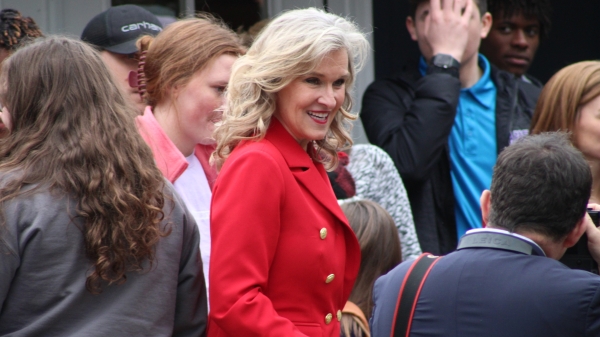By Bill Britt
Alabama Political Reporter
MONTGOMERY—We celebrate Memorial Day with solemn ceremony, but also with picnics, family gatherings and other joys of life.
We pray that our nation’s war dead find our actions to honor them fitting and right.
Memorial Day is not a time to remember those who served in uniform but the day we honor all who purchased our freedom with their blood and breath. It is the day that we honor our country’s warriors who gave their all to ensure that the promise of our nation remain true. Their life was a ultimate sacrifice for our future. The loss of these women and men is a terrible reminder that one nation, under God, indivisible, with life, liberty and justice for all comes at a very great cost. Killed on battlefields, from Shiloh to Kabul, on the land, air and sea, all fighting in our names. Our cause: their mission. Their loss: our gain.
Originally called Decoration Day, there is a question as to the origins of our modern Memorial Day. As a Southerner I believe the historical evidence of Southern women placing flowers on the graves of the Confederate dead is where our tradition of Memorial Day comes from. There is a record that on April 25, 1866, a group of women from Columbus, MS were seen decorating the Confederate graves of those who died at Shiloh. It was reported that the women seeing the neglected burial plots of the Northern soldiers laid flowers upon their graves as well. This would be a very humane thing to do because the dead are no longer our enemy but someone else’s loved-one.
Many older Southern families still recognized the long-held tradition of a family Decoration Day. Usually held on a Sunday in late spring or early summer. It is a time to place flowers on family graves. It often becomes an occasion for an extended family reunion, accompanied by a “meal on the ground,” or a potluck dinner. We honor those who passed with remembrance and a celebration of life.
So it is with Memorial Day, remembrance and celebration take center stage. But what debit do we owe these fallen ones? It is foolish to offer a pledge to end war, because wars will not end as long as mankind rules the earth. It is also great foolishness to promise wars that will make the world safe for democracy or anything of the sort. We should also be careful of the notion that perpetual war will bring perpetual peace.
Are such utopian ideas not worth one American dead? We cannot abolish war, but we can promise to execute it justly.
Among the many things we owe these men and women is a government that will not adventure into unjust wars. The dreadful act of killing should not rest easily on the nation’s conscience without real and just motives. As Washington cautioned, “Over grown military establishments are under any form of government inauspicious to liberty, and are to be regarded as particularly hostile to republican liberty.” But as he also said, “It must be known, that we are at all times ready for War.”
As citizens of a republic, we should remain suspect of any particular administration’s desire for war, understanding that war is politics by violent means. The Stanford Encyclopedia of Philosophy puts it this way, “Indeed, it seems that all warfare is precisely, and ultimately, about governance. War is a violent way for determining who gets to say what goes on in a given territory, for example, regarding: who gets power, who gets wealth and resources, whose ideals prevail, who is a member and who is not, which laws get made, what gets taught in schools, where the border rests, how much tax is levied, and so on. War is the ultimate means for deciding these issues if a peaceful process or resolution can’t be agreed upon.”
We owe a great debt to those who have kept our nation alive. We are to be eternally grateful to those who purchased our freedom with their own precious blood. But we must guard against spilling it without cause.
What grows on a blood soaked battlefield? We pray it will be freedom. We hope it will be life that springs from such sacrifice.
There is an Irish ballad, written by Robert Dwyer Joyce titled “The Wind that Shakes the Barley.”
It is written from the perspective of a doomed rebel who is about to sacrifice his life and love during the 1798 rebellion in Ireland. The songs reference to barley derives from the fact that the rebels often carried grains in their pockets as food when they finished battle. After the war it was notices that barley spring to life on top of the mass unmarked graves into which slain rebels were tossed. The barley phenomenon was believed to represent the regenerative power of Irish to resist British rule.
At Arlington National Cemetery and at a thousand of others places around the world, our nation’s dead lie in gardens of stone. We are the heirs of their sacrifice, and have a sacred responsibility to honor and keep the freedoms they bled and died for. So, as we gather today in remembrance and celebration of the joys of life, we will realize that this is all possible because of their sacrifice.




















































